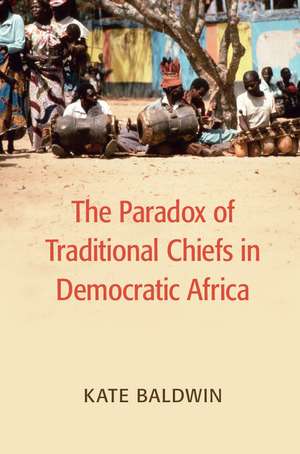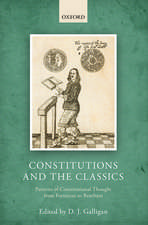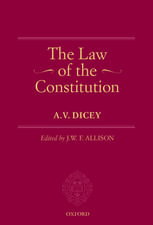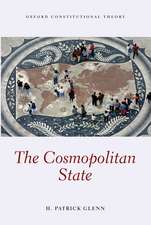The Paradox of Traditional Chiefs in Democratic Africa: Cambridge Studies in Comparative Politics
Autor Kate Baldwinen Limba Engleză Paperback – 11 noi 2015
| Toate formatele și edițiile | Preț | Express |
|---|---|---|
| Paperback (1) | 259.73 lei 6-8 săpt. | |
| Cambridge University Press – 11 noi 2015 | 259.73 lei 6-8 săpt. | |
| Hardback (1) | 676.27 lei 6-8 săpt. | |
| Cambridge University Press – 11 noi 2015 | 676.27 lei 6-8 săpt. |
Din seria Cambridge Studies in Comparative Politics
-
 Preț: 179.15 lei
Preț: 179.15 lei -
 Preț: 267.61 lei
Preț: 267.61 lei -
 Preț: 239.36 lei
Preț: 239.36 lei - 9%
 Preț: 594.68 lei
Preț: 594.68 lei -
 Preț: 160.82 lei
Preț: 160.82 lei -
 Preț: 269.58 lei
Preț: 269.58 lei -
 Preț: 264.74 lei
Preț: 264.74 lei -
 Preț: 177.28 lei
Preț: 177.28 lei -
 Preț: 225.70 lei
Preț: 225.70 lei -
 Preț: 164.94 lei
Preț: 164.94 lei -
 Preț: 236.42 lei
Preț: 236.42 lei -
 Preț: 185.64 lei
Preț: 185.64 lei -
 Preț: 233.13 lei
Preț: 233.13 lei -
 Preț: 206.71 lei
Preț: 206.71 lei -
 Preț: 231.82 lei
Preț: 231.82 lei -
 Preț: 206.52 lei
Preț: 206.52 lei -
 Preț: 201.24 lei
Preț: 201.24 lei -
 Preț: 358.38 lei
Preț: 358.38 lei -
 Preț: 203.42 lei
Preț: 203.42 lei -
 Preț: 232.45 lei
Preț: 232.45 lei -
 Preț: 257.82 lei
Preț: 257.82 lei -
 Preț: 191.12 lei
Preț: 191.12 lei -
 Preț: 158.77 lei
Preț: 158.77 lei -
 Preț: 199.05 lei
Preț: 199.05 lei - 11%
 Preț: 553.80 lei
Preț: 553.80 lei - 11%
 Preț: 695.06 lei
Preț: 695.06 lei -
 Preț: 288.80 lei
Preț: 288.80 lei -
 Preț: 262.06 lei
Preț: 262.06 lei - 11%
 Preț: 691.66 lei
Preț: 691.66 lei -
 Preț: 388.29 lei
Preț: 388.29 lei -
 Preț: 288.04 lei
Preț: 288.04 lei -
 Preț: 228.00 lei
Preț: 228.00 lei -
 Preț: 385.28 lei
Preț: 385.28 lei -
 Preț: 312.89 lei
Preț: 312.89 lei -
 Preț: 224.44 lei
Preț: 224.44 lei -
 Preț: 287.07 lei
Preț: 287.07 lei -
 Preț: 251.27 lei
Preț: 251.27 lei -
 Preț: 313.70 lei
Preț: 313.70 lei -
 Preț: 277.38 lei
Preț: 277.38 lei -
 Preț: 423.79 lei
Preț: 423.79 lei - 11%
 Preț: 552.94 lei
Preț: 552.94 lei - 11%
 Preț: 554.43 lei
Preț: 554.43 lei - 14%
 Preț: 783.26 lei
Preț: 783.26 lei
Preț: 259.73 lei
Nou
Puncte Express: 390
Preț estimativ în valută:
49.71€ • 51.70$ • 41.03£
49.71€ • 51.70$ • 41.03£
Carte tipărită la comandă
Livrare economică 12-26 aprilie
Preluare comenzi: 021 569.72.76
Specificații
ISBN-13: 9781107566446
ISBN-10: 1107566444
Pagini: 253
Ilustrații: 23 b/w illus. 24 tables
Dimensiuni: 152 x 228 x 16 mm
Greutate: 0.36 kg
Editura: Cambridge University Press
Colecția Cambridge University Press
Seria Cambridge Studies in Comparative Politics
Locul publicării:New York, United States
ISBN-10: 1107566444
Pagini: 253
Ilustrații: 23 b/w illus. 24 tables
Dimensiuni: 152 x 228 x 16 mm
Greutate: 0.36 kg
Editura: Cambridge University Press
Colecția Cambridge University Press
Seria Cambridge Studies in Comparative Politics
Locul publicării:New York, United States
Cuprins
Part I. Toward a New Theory of Chiefs: 1. The paradox of chiefs; 2. Conceptualizing chiefs; 3. Traditional leaders and democracy; 4. Chiefs as development brokers; Part II. Chiefs, Development, and Elections in Zambia: 5. Introduction to Zambia; 6. Chiefs and local public goods provision; 7. Electoral king makers; 8. Chiefs and the voter's calculus; Part III. Traditional Leaders in Africa and Beyond: 9. Chiefs and government responsiveness across Africa; 10. Development brokers revisited.
Recenzii
'The role of the chiefs in Africa has long been hotly contested by politicians and scholars alike. In this superb study, Kate Baldwin re-frames these debates and teaches us much that is new and important.' Robert Bates, Eaton Professor of the Science of Government, Harvard University, Massachusetts
'Are traditional leaders inimical to the functioning of democratic institutions in sub-Saharan Africa? For several decades both scholars of African politics and major African political figures have largely agreed on this basic point. And yet, in this fantastic new book, Kate Baldwin highlights a resurgence of traditional leadership in democratic Africa. She provides plausible theories and a wide -range of evidence to explain their enhanced role and to support the claim that chiefs routinely act as surprisingly effective 'development brokers'. This important work should be of great interest to scholars, students and practitioners in the field of African development.' Evan S. Lieberman, Total Professor of Political Science and Contemporary Africa, Massachusetts Institute of Technology
'Why does African traditional leadership survive in a democratic era? For the simple and surprising reason that chiefs often make democracy work better for citizens. Baldwin''s wide- ranging study challenges us to rethink old models of governance and their view of traditional and modern authorities in opposition to one another. This is a book with very broad implications for Africa and elsewhere.' David Stasavage, New York University
'Democracy is thought to promote local public goods provision. But while democratic electoral institutions may create incentives for politicians to respond to citizens' demands, they do not provide the capacity for politicians to actually deliver the local public goods that citizens crave - and in many rural African settings this capacity is severely lacking. This, as Kate Baldwin shows in this remarkable book, is where traditional chiefs play a critical role. Their embeddedness in the communities they rule, combined with their long time horizons, puts them in a unique and advantageous position to organize local public goods provision in partnership with elected leaders. Traditional chiefs should therefore be seen not as undemocratic vote brokers who pervert the democratic process, but as critical contributors to local accountability and development. For both its novel argument and the impressive evidence marshalled to support it, [this book] makes a major contribution to the study of the political economy of rural Africa.' Daniel N. Posner, James S. Coleman Professor of International Development, University of California, Los Angeles
'Baldwin has rescued African chiefs from oblivion … Highly recommended.' R. I. Rotberg, Choice
'Are traditional leaders inimical to the functioning of democratic institutions in sub-Saharan Africa? For several decades both scholars of African politics and major African political figures have largely agreed on this basic point. And yet, in this fantastic new book, Kate Baldwin highlights a resurgence of traditional leadership in democratic Africa. She provides plausible theories and a wide -range of evidence to explain their enhanced role and to support the claim that chiefs routinely act as surprisingly effective 'development brokers'. This important work should be of great interest to scholars, students and practitioners in the field of African development.' Evan S. Lieberman, Total Professor of Political Science and Contemporary Africa, Massachusetts Institute of Technology
'Why does African traditional leadership survive in a democratic era? For the simple and surprising reason that chiefs often make democracy work better for citizens. Baldwin''s wide- ranging study challenges us to rethink old models of governance and their view of traditional and modern authorities in opposition to one another. This is a book with very broad implications for Africa and elsewhere.' David Stasavage, New York University
'Democracy is thought to promote local public goods provision. But while democratic electoral institutions may create incentives for politicians to respond to citizens' demands, they do not provide the capacity for politicians to actually deliver the local public goods that citizens crave - and in many rural African settings this capacity is severely lacking. This, as Kate Baldwin shows in this remarkable book, is where traditional chiefs play a critical role. Their embeddedness in the communities they rule, combined with their long time horizons, puts them in a unique and advantageous position to organize local public goods provision in partnership with elected leaders. Traditional chiefs should therefore be seen not as undemocratic vote brokers who pervert the democratic process, but as critical contributors to local accountability and development. For both its novel argument and the impressive evidence marshalled to support it, [this book] makes a major contribution to the study of the political economy of rural Africa.' Daniel N. Posner, James S. Coleman Professor of International Development, University of California, Los Angeles
'Baldwin has rescued African chiefs from oblivion … Highly recommended.' R. I. Rotberg, Choice
Notă biografică
Descriere
This book shows that powerful hereditary chiefs do not undermine democracy in Africa but, on some level, facilitate it.

















